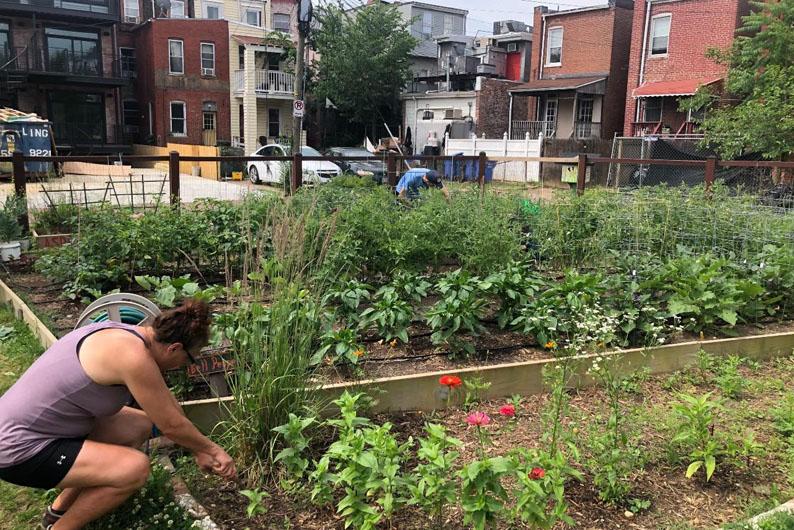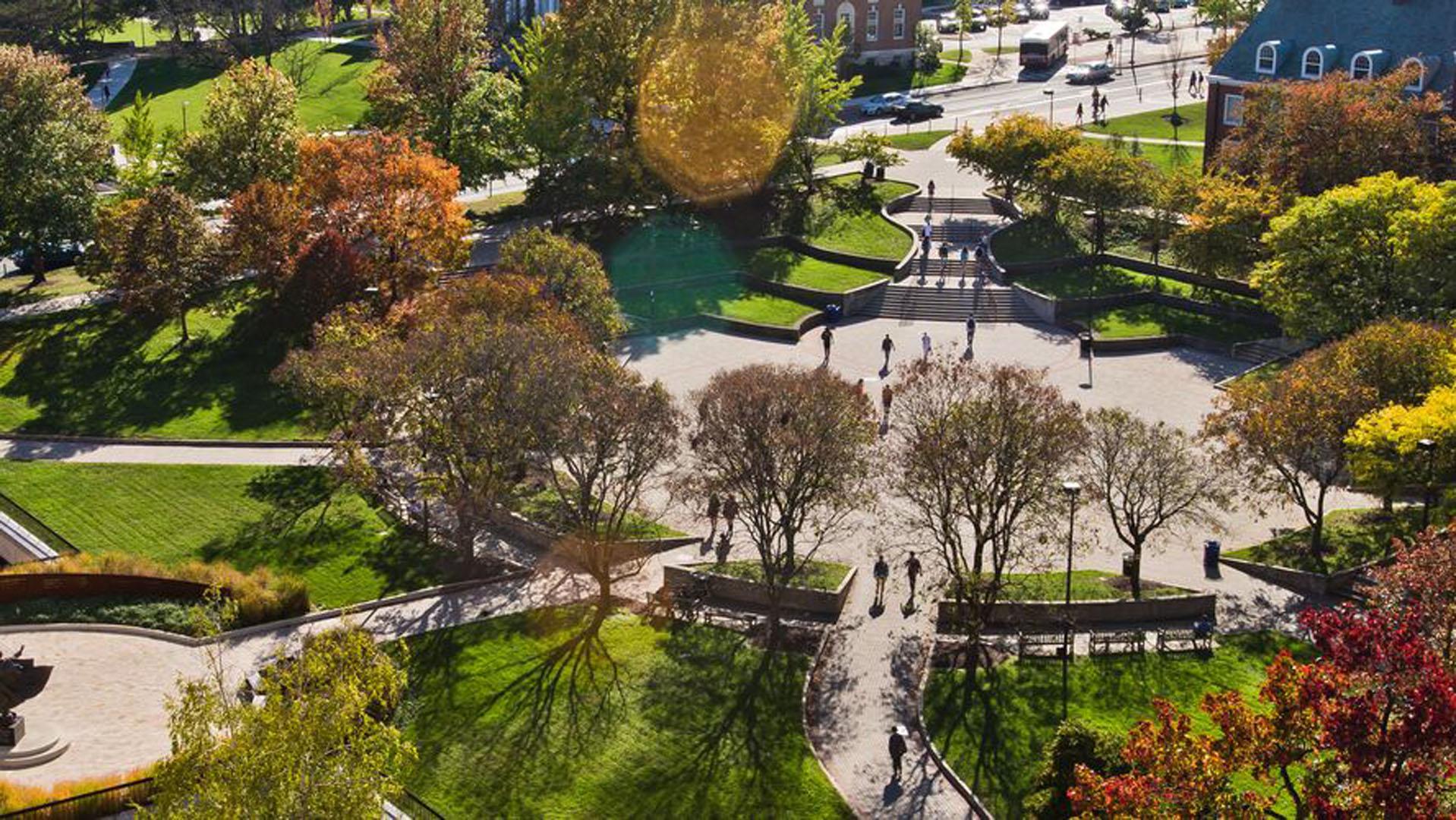
Sustainable Grounds & Gardens
Protecting our landscape means protecting our health.
Air, water and soil quality are all essential to our wellbeing and the wellbeing of wildlife, ecosystems, and watersheds. Located just outside the nation’s capital, the University of Maryland’s 1,250 acres of arboretum and botanical gardens contribute to the well being of our region.
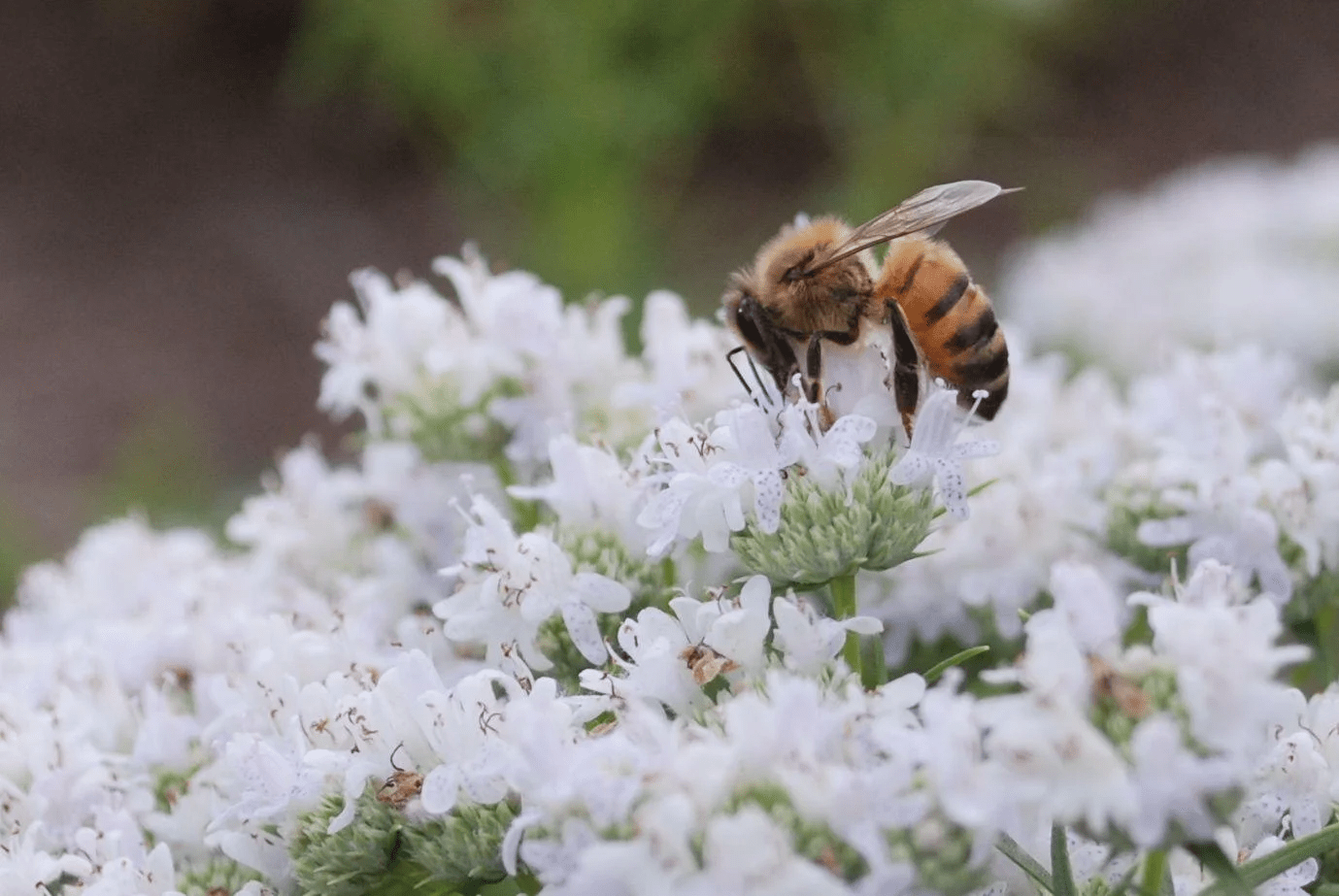
Achievements
Recognition for UMD's efforts to support thriving green spaces
UMD integrates environmental stewardship into campus development, design and restoration projects. UMD’s campus is an award-winning arboretum and botanical garden where horticultural staff and volunteers care for trees and gardens, conserve biodiversity, and provide opportunities for education, public enjoyment, research, and food production.
Bee Campus USA: In the spring of 2023, the University of Maryland's campus was designated as a Bee Campus USA, recognizing the work of many different campus partners to promote the health of pollinators in our local area through increasing the abundance of native plants, providing nest sites, and reducing the use of pesticides.
Prince George's Audubon Society Certified Habitats: Five garden sites on campus were certified PGAS's wildlife habitats in 2023. These gardens include Maryland Natives Shade Garden, Woods Hall Rain Garden, H. Edward Reiley Azalea and Rhododendron Garden, Pollinator Garden at Edward St. John Learning and Teaching Center, and Knight Hall Pollinator Garden.
Tree Campus Higher Education: Since the inaugural year of the arboretum in 2008, the University has been honored by the Arbor Day Foundation with the designation of Tree Campus Higher Education. The program provides a framework for colleges and universities to grow their community forests, achieve national recognition, and create a campus their students and staff are proud of.
Bird Campus: UMD was recognized as a Bird Campus by the Maryland Bird Conservation Partnership in spring 2024. This recognition signifies UMD's efforts in creating, protecting, and restoring bird habitat, addressing threats to birds, and engaging people in birding and conservation.
ArbNet Level IV Accreditation: UMD achieved the highest level of ArbNet accreditation in 2019. This sucess was made possible through having over 500 labeled tree and woody plant taxa, scientific and conservation staff, substantial public and educational programming, and conservation activities.
Certified Audubon Cooperative Sanctuary: The UMD Golf Course has been recognized as a Audubon Cooperative Sanctuary since 2003. This program promotes ecologically sound land management through environmental planning, wildlife and habitat management, outreach and education, chemical use reduction, water conservation, and water quality management.
Sustainable Landscaping on Campus
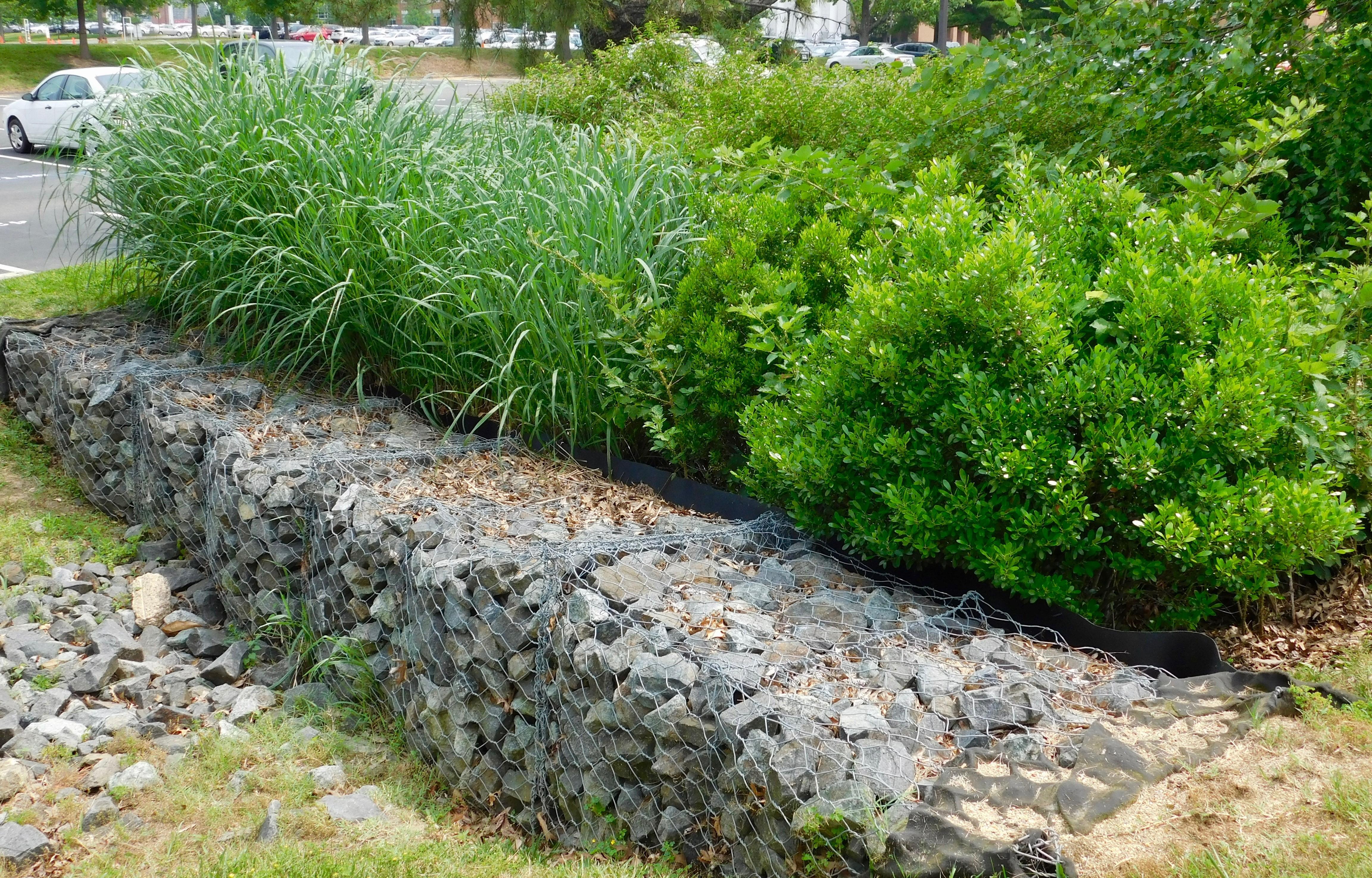
Stormwater Management
UMD has the major responsibility and priority to protect water quality, since campus is centrally located within the Anacostia Watershed and discharges stormwater to three tributaries. Stormwater management is critical keeping pollutants out of waterways and preventing flooding and erosion. Best Management Practices (BMPs) are used on campus to reduce the quantity of stormwater runoff and improve the water quality. Increasing pervious surfaces through the installation of rain gardens/bioretention cells, green roofs, and permeable pavement allows stormwater to percolate downwards into the soil, where it is naturally filtered before it enters local waterways.
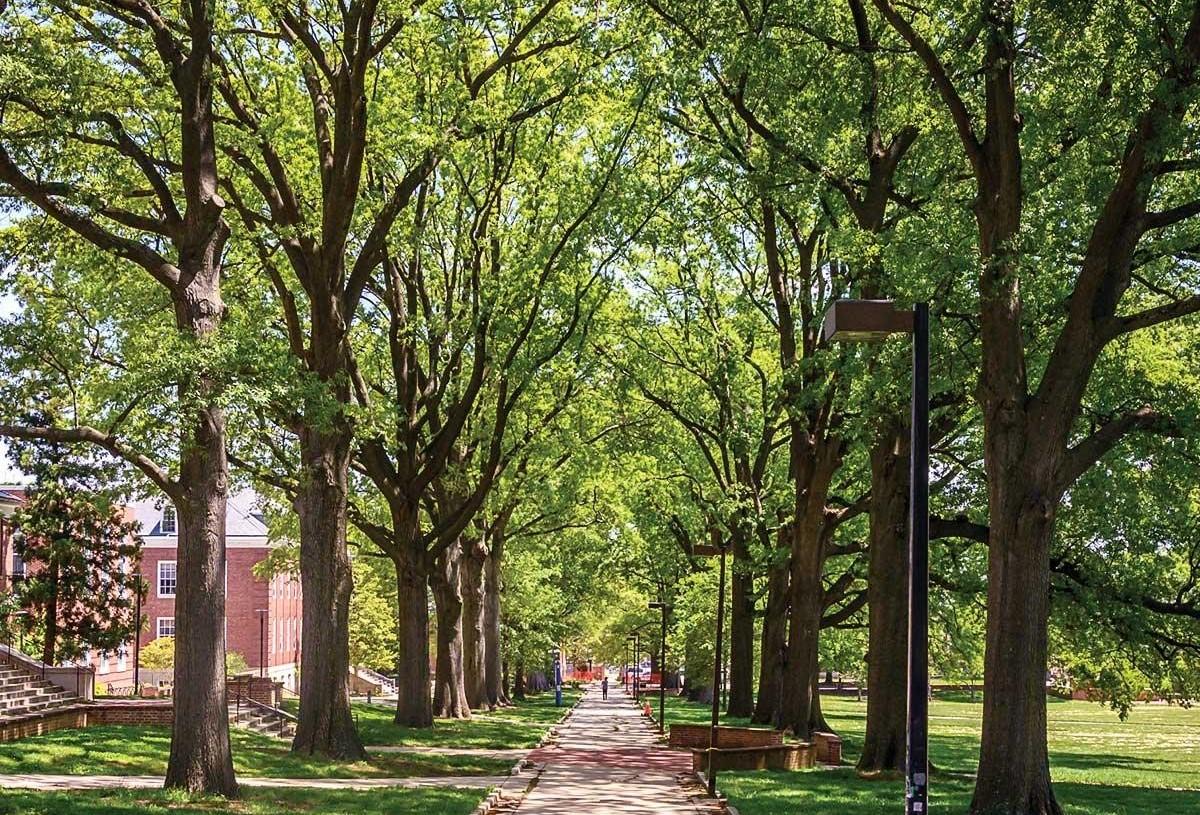
Green Spaces
Interactive and educational green spaces throughout campus provide living-learning environments that benefit both student wellbeing and nature. In fact, a growing body of research shows green space plays an important role in supporting individual's mental health and well-being. These natural environments lead to better academic performance, reduce stress and anxiety, and encourage physical and social development. Numerous gardens, courtyards, parks, and plazas throughout campus also provide valuable habitat for birds and pollinators and help sequester carbon. Tree cover naturally decreases surfaces temperatures and reduces the heat island effect common in urban areas.
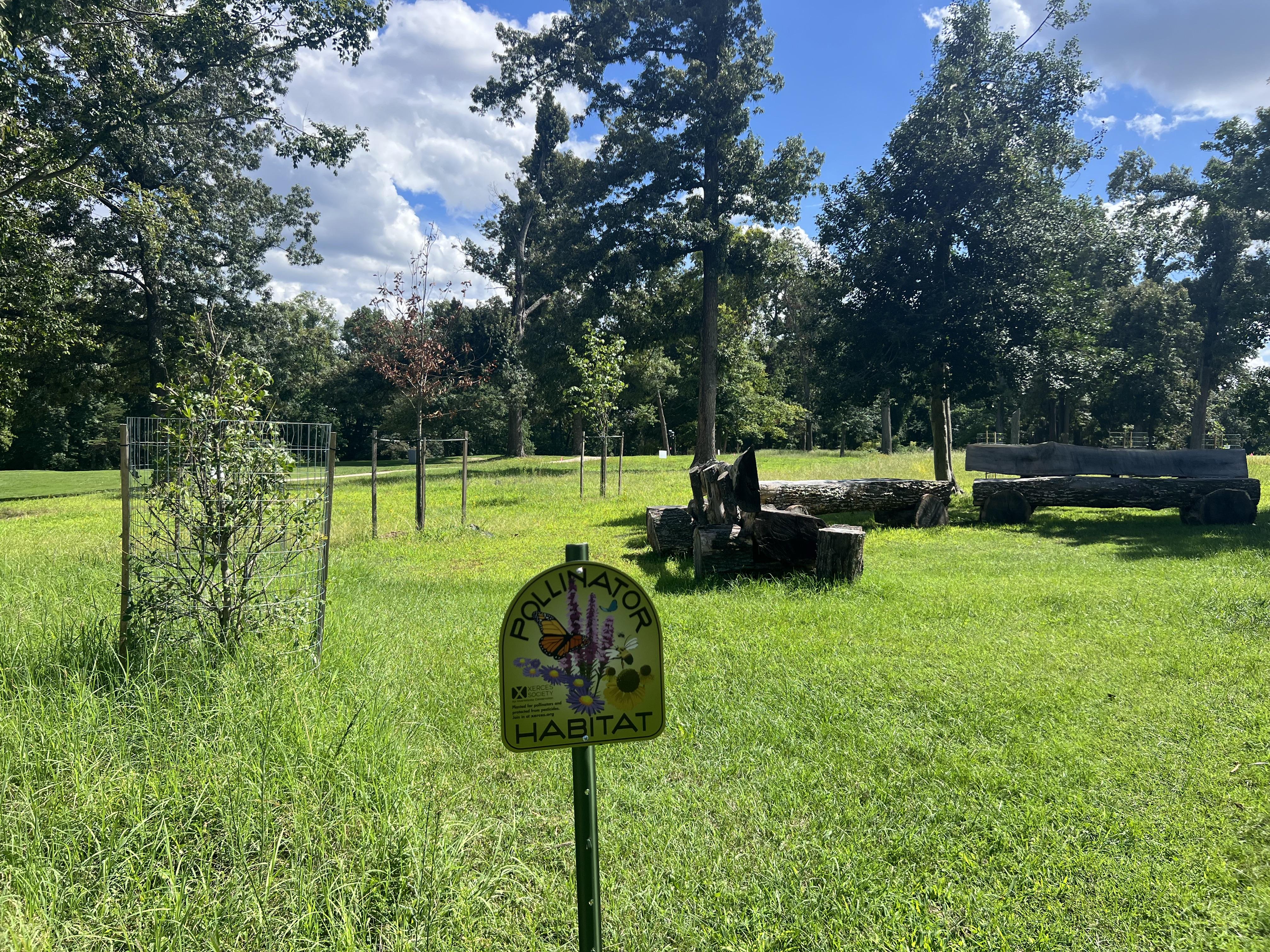
Environmentally Sensitive Management
The UMD Golf Course employs a number of strategies to protect water quality, increase carbon storage, decrease inputs, and preserve important wildlife habitats. The fairways for instance use a grass that requires very few, if any, inputs other than modest amounts of fertilizer and minimal irrigation. Worm compost is used on all tee boxes and approaches to improve overall plant health and help extend the amount of time between pesticide applications. In addition, significant “naturalized” areas of the course are not mown during the summer and fallen trees and tree limbs are left to create important habitats for birds, small mammals and insects. Naturalized areas have been planted around waterways to act as natural buffer zones. and preserve water quality.
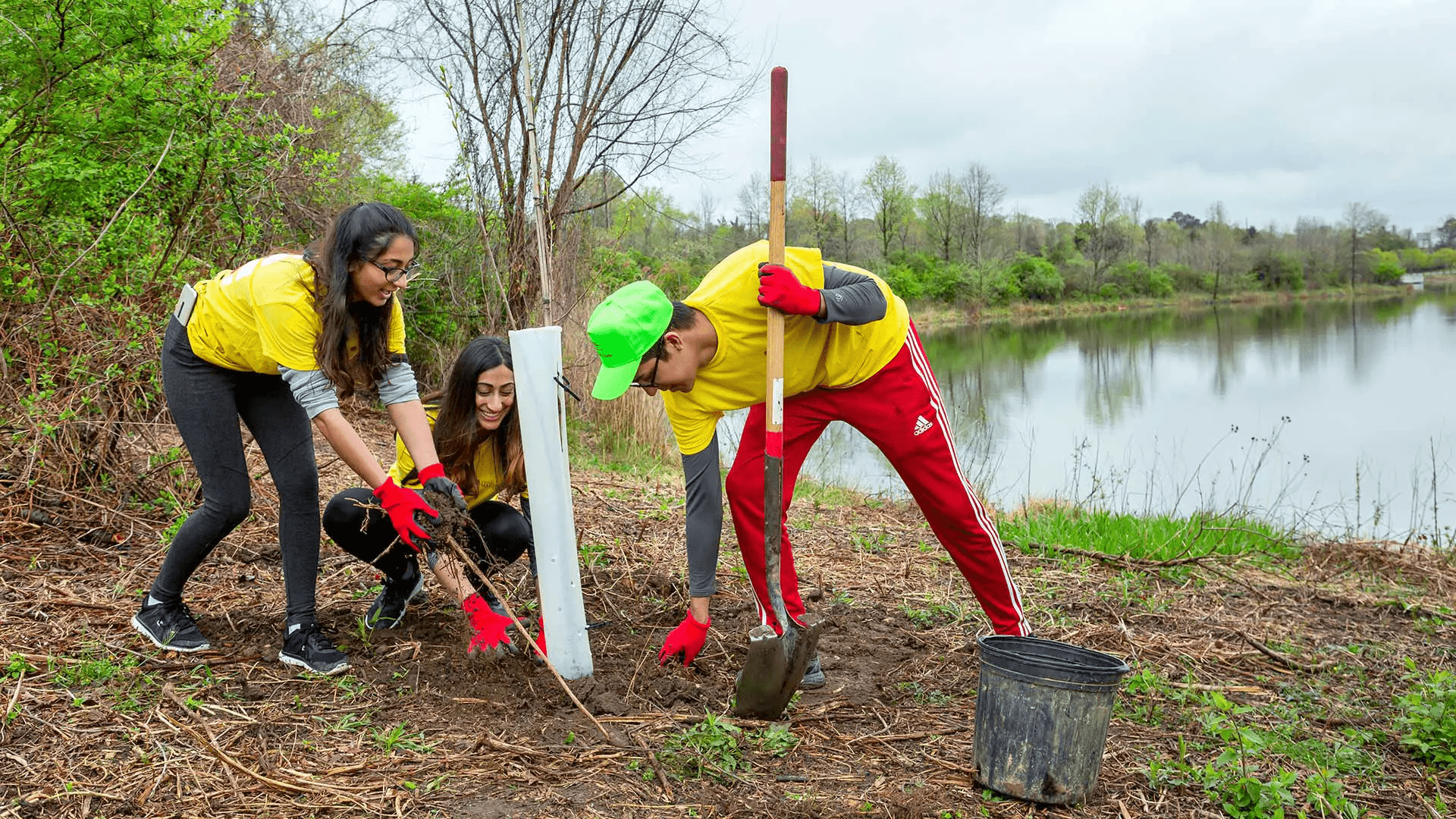
Opportunities
Get involved to support sustainable landscapes on campus
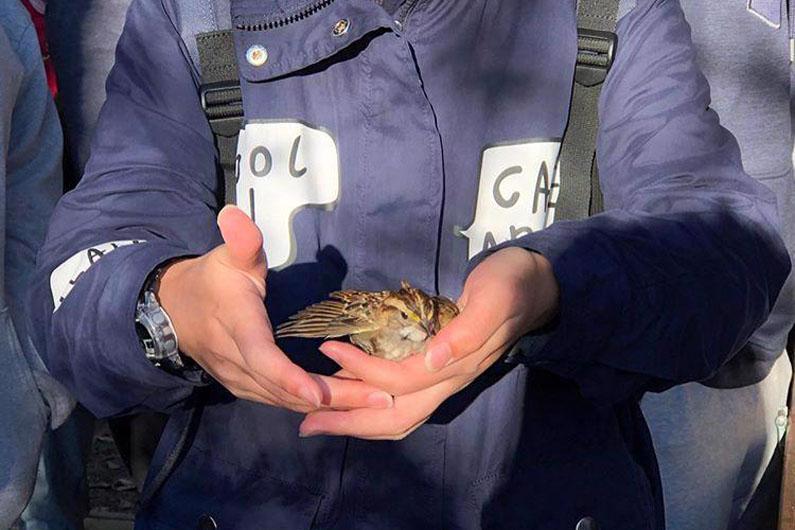
Wildlife Society
The Wildlife Society at UMD is a professional society that welcomes anyone interested in learning more about wildlife research and management. The organization participates in pollinator garden planting, bird and bee box installation and maintenance, outdoor clean-ups, birding outings, and hosts an annual Bat Fest.
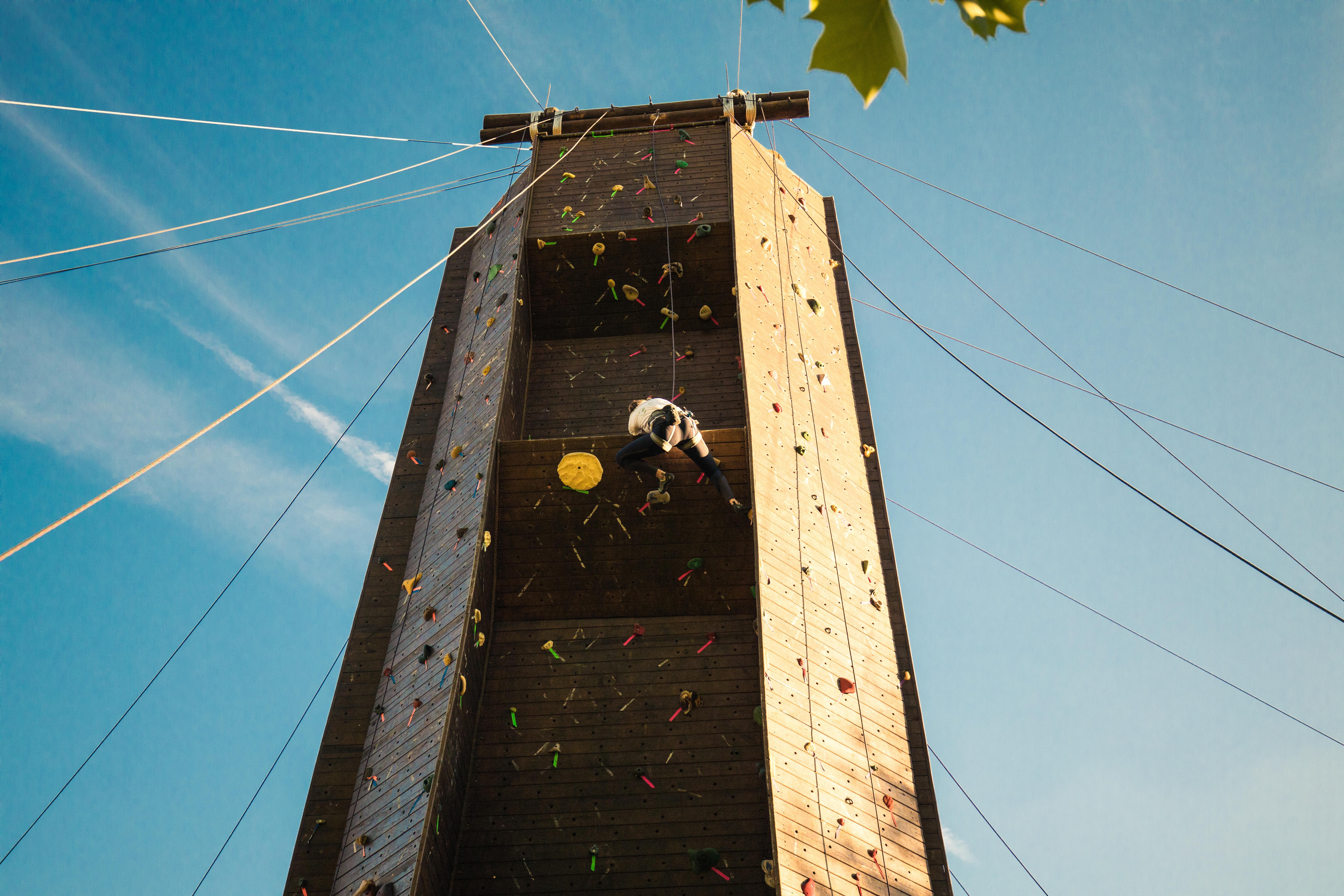
NatureRX
NatureRx@UMD is a new and burgeoning movement, represented by numerous individuals and units within the University of Maryland College Park community, who have come together with a shared passion for the many ways in which the landscape of our campus arboretum and other recreation spaces can heal and preserve the health and well-being of every person.
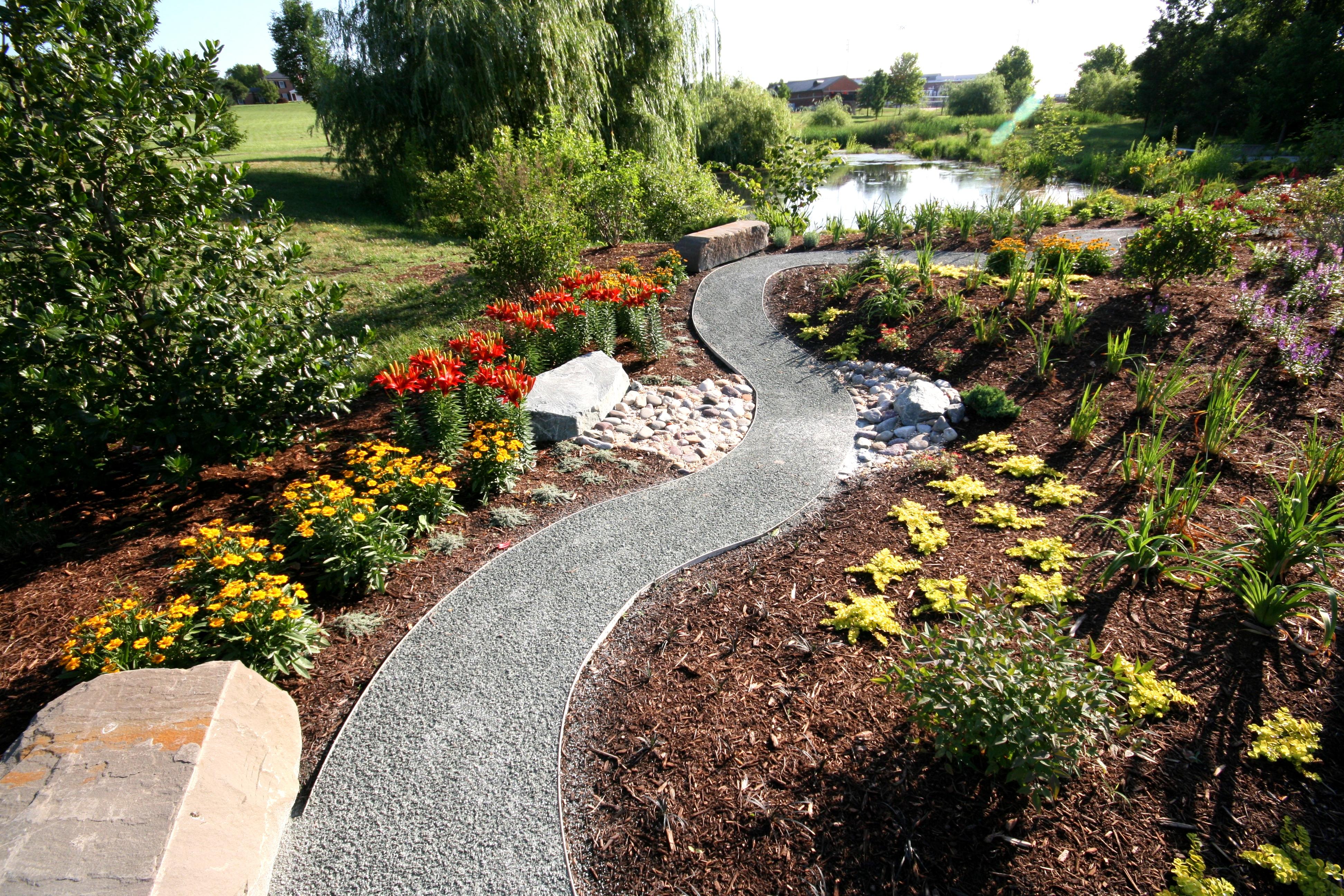
Volunteer with the Arboretum
The arboretum offered many varied opportunities for volunteers to help beautify the campus landscape while spending time in the great outdoors. When you come to volunteer, be prepared to get your hands dirty with weeding, raking, pruning, planting trees, shrubs, and flowers, cleaning up landscapes, mulching, or replenishing footpaths. You will feel like you have accomplished something special when you are done.
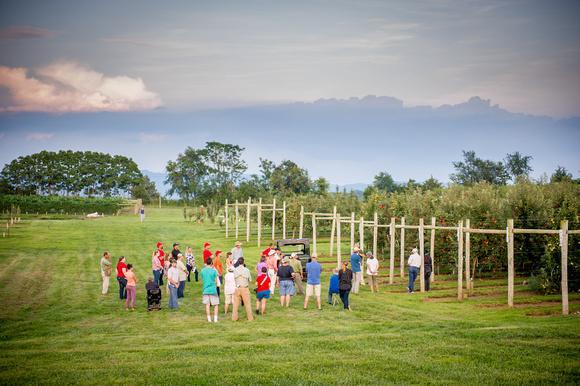
Learn more about Sustainable Landscapes
UMD Extension is a comprehensive resource that provides educational programs and problem-solving assistance based on the research and experience of land grant universities such as UMD. Find extensive information in categories including agriculture, yard care & gardening, pests, natural resources, environment & energy, food & nutrition, and health & wellbeing. The Ask Extension feature allows you ask experts about any questions you might have!
